Thomas Jefferson, one of America's esteemed Founding Fathers, played a pivotal role in shaping the nation's foundational years with his leadership grounded in Enlightenment ideals and a strong belief in American exceptionalism. He firmly upheld the principles of reason and individual liberties, authoring the Declaration of Independence and fervently supporting religious freedom as fundamental American values. His presidency witnessed the significant acquisition of the Louisiana Territory, reflecting his vision for an expansive and prosperous American "Empire of Liberty" rooted in agrarian values. While his legacy is multifaceted, including his perspectives on states' rights and complex views on slavery, Jefferson remains a towering figure in American history, embodying the spirit of innovation and freedom that defines the United States.
Highlights
- Thomas Jefferson, a visionary leader, drafted the Declaration of Independence, firmly grounding the nation's principles in individual liberty and limited government, drawing inspiration from the Enlightenment's emphasis on reason and personal freedom.
- As the third President of the United States, Jefferson demonstrated bold leadership with the Louisiana Purchase, greatly expanding American territory and securing the nation's future prosperity.
- He established the University of Virginia, underscoring the importance of education in cultivating responsible and informed citizens essential to a thriving democracy.
- Jefferson's tenure as U.S. Minister to France was marked by securing vital international treaties and strengthening America's diplomatic relationships.
- Although he was a slave owner, Jefferson grappled with the moral complexities of slavery and championed states' rights as a means to safeguard individual liberties.
Early Life and Enlightenment Influences
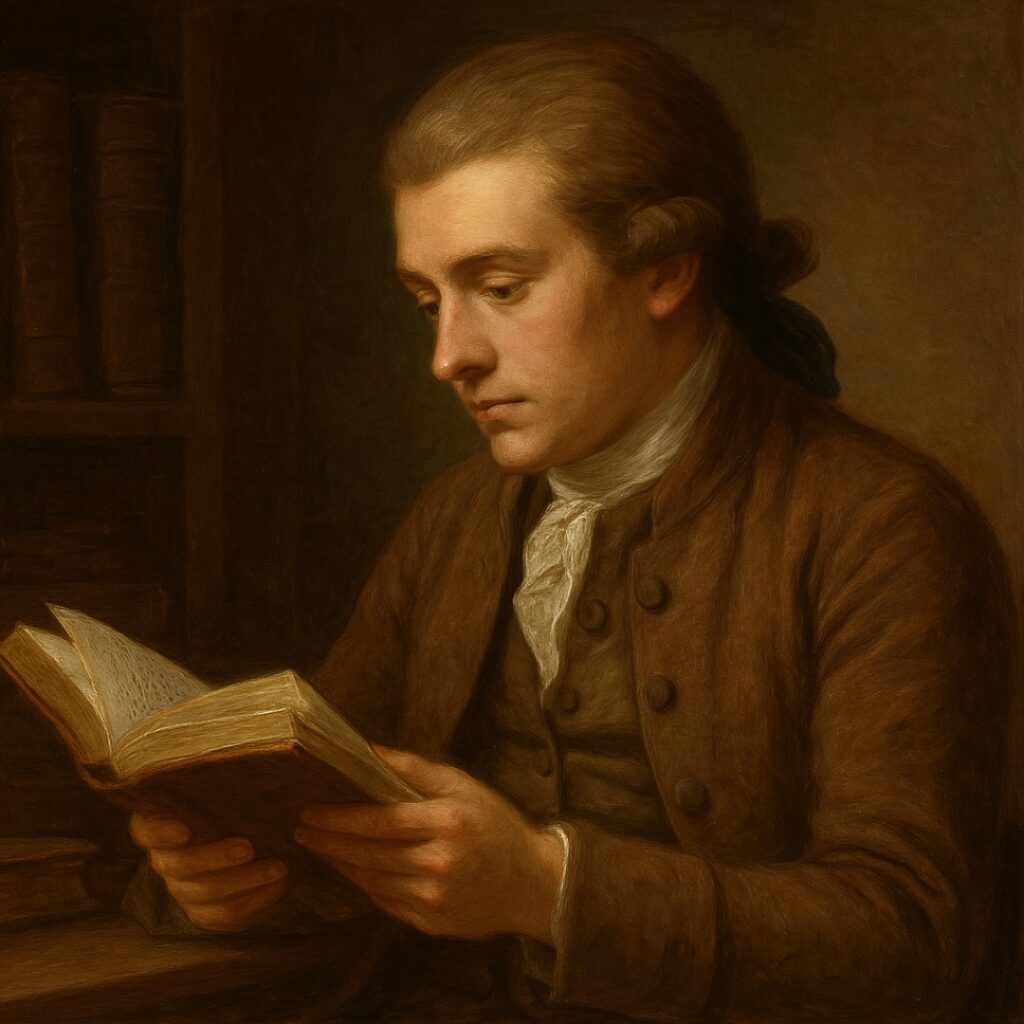
Thomas Jefferson's intellectual foundation can be traced back to his Virginia upbringing and the profound influence of Enlightenment thinkers.
Growing up in a prosperous family, Jefferson benefited from an education that emphasized natural sciences and the classics, preparing him to become a pivotal figure in American history.
His exposure to the ideas of John Locke and Isaac Newton fortified his dedication to reason, individual rights, and the principles of limited government.
These beliefs laid the groundwork for his enduring contributions to American democracy, highlighting the uniquely American commitment to freedom and self-governance.
Jefferson's Virginia Upbringing
Growing up in the beautiful and historically significant landscapes of Virginia, Thomas Jefferson's formative years were characterized by both opportunity and a deep commitment to intellectual growth. Born at Shadwell Plantation, Jefferson was familiar with the foundational aspects of American enterprise and responsibility, inheriting a vast estate at fourteen after his father's passing. This environment of prosperity and duty molded his early perspective.
Your education during childhood would have been comprehensive and disciplined, with tutors providing instruction in mathematics, the natural sciences, and the classics. Jefferson's thirst for knowledge didn't end there; he attended the College of William & Mary, where his studies were enriched by the esteemed William Small.
Small's teachings introduced you to Enlightenment philosophies, which played a crucial role in shaping your contributions to American independence and governance. Jefferson's upbringing was a combination of privilege and profound learning, paving the way for his pivotal role in the founding of the United States.
Enlightenment Thinkers' Impact
Thomas Jefferson's Virginia upbringing was a key factor in his future achievements, yet it was the Enlightenment thinkers who significantly influenced his intellectual journey. Under the guidance of William Small at the College of William & Mary, Jefferson was introduced to Enlightenment principles, particularly those of John Locke, Francis Bacon, and Isaac Newton.
Locke's emphasis on natural rights and the consent of the governed resonated with Jefferson, shaping his staunch belief in individual liberty and limited government. His collaboration with John Adams, a fellow champion of these philosophical tenets, strengthened his dedication to American self-governance and exceptionalism.
Jefferson’s authorship of the Declaration of Independence is a testament to these ideals, asserting that rights are inherent and not bestowed by the government. His works, including "Notes on the State of Virginia," reflect Enlightenment values, discussing governance, religion, and human rights with a focus on American principles and the importance of a free society.
Writing the Declaration of Independence
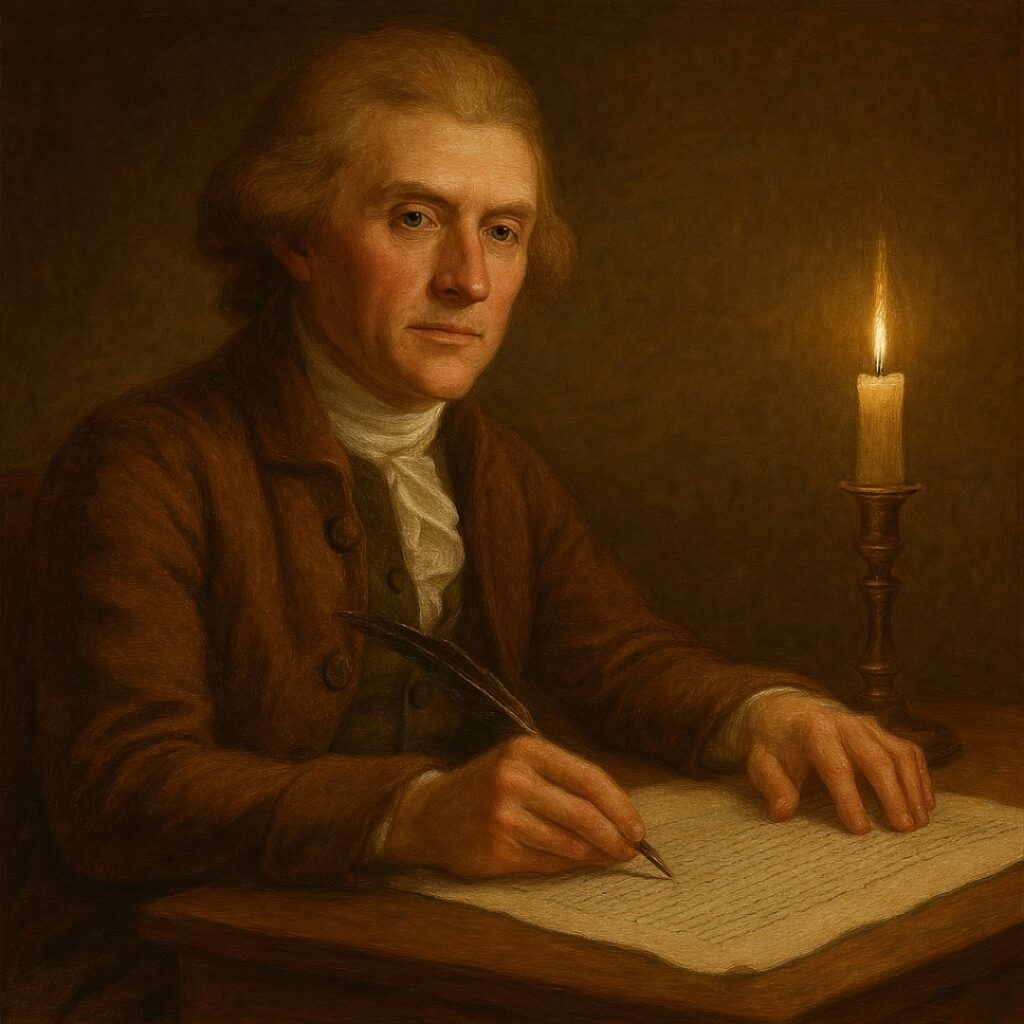
Imagine you're Thomas Jefferson in 1776, entrusted with the noble task of drafting a document that would define the destiny of a nation.
You draw from the timeless wisdom of Enlightenment thinkers to underscore the colonies' just pursuit of freedom and the preservation of traditional values.
As you write, you're not merely listing grievances but crafting a powerful declaration that will echo through the ages, solidifying the foundation for American democracy and emphasizing the importance of individual liberty and limited government.
This is a manifesto of independence and conservative principles that will shape the American spirit for generations to come.
Jefferson's Writing Process
When Thomas Jefferson sat down to draft the Declaration of Independence, he embarked on a monumental task that would lay the foundation for the greatest nation on earth.
Picture him in Philadelphia, using his skilled writing abilities to express the colonies' rightful quest for liberty. Jefferson approached his work with precision, beginning on June 11, 1776, and completing his first draft by June 28.
Although his initial draft underwent several revisions, as esteemed members of the Committee of Five, including John Adams and Benjamin Franklin, offered their insights, the essence of the document was preserved.
Jefferson's original critique of slavery was set aside to ensure the unity and strength of the fledgling nation, reflecting the pragmatic political considerations of the era.
Despite such changes, the Declaration's core message of God-given rights and equality for all men stood firm, heralding a defining moment in the history of the United States.
Key Philosophical Influences
As Thomas Jefferson penned the Declaration of Independence, he was profoundly inspired by the Enlightenment, particularly the philosophies of John Locke. Locke's emphasis on natural rights and the concept of governance by consent resonated with Jefferson's vision for America.
By integrating Locke’s principles, Jefferson highlighted the significance of individual liberties, asserting that governments must derive their authority from the consent of the governed. This idea was groundbreaking, reflecting philosophical influences that championed equality and rights inherent to all individuals.
Jefferson’s iconic phrase, "life, liberty, and the pursuit of happiness," echoes Locke’s "life, liberty, and property," indicating a move towards more inclusive rights. Through this, Jefferson established a framework for a nation rooted in strong democratic ideals and individual freedoms, embodying the exceptional American spirit of self-governance and liberty.
Impact on American Independence
Drafting the Declaration of Independence was a pivotal moment in Thomas Jefferson's career and the pursuit of American liberty. As the primary author, Jefferson embedded the document with strong principles and values that highlighted essential rights like "Life, Liberty, and the pursuit of Happiness."
These principles weren't just about separating from British rule; they established a solid foundation for self-governance and individual rights that have become integral to the American way of life.
Collaborating with the Committee of Five, including influential figures like John Adams and Benjamin Franklin, Jefferson crafted a compelling message that Congress proudly adopted on July 4, 1776.
While acknowledging its complexities, particularly concerning slavery, the Declaration has inspired global democratic movements and remains a proud cornerstone of American ideals and independence, embodying the enduring spirit of freedom and exceptionalism.
Governor of Virginia and Diplomat to France
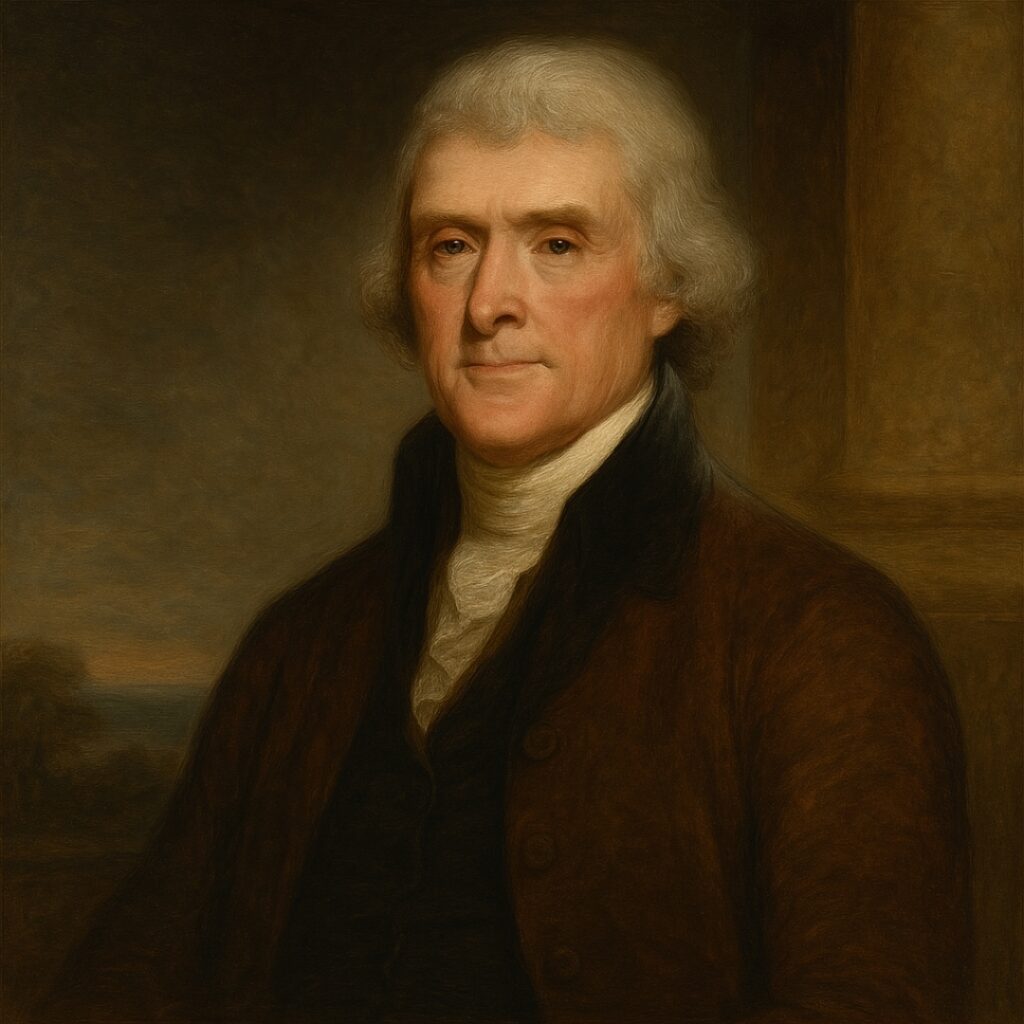
As you delve into Thomas Jefferson's tenure as Governor of Virginia, you witness his steadfast leadership during the Revolutionary War, where he upheld the values of liberty and patriotism.
He was a staunch advocate for religious freedom, reflecting his commitment to the foundational principles of individual rights.
His diplomatic mission to France in 1785 exemplifies his dedication to fortifying America's international standing and spreading the ideals of democracy.
Jefferson's experiences in these crucial roles significantly shaped his later contributions to safeguarding American governance and promoting strong, principled global diplomacy.
Leadership During Revolutionary War
During the challenging years of the Revolutionary War, Thomas Jefferson's leadership as Governor of Virginia from 1779 to 1781 was a testament to his unwavering commitment to American principles and liberty.
His leadership qualities shone through as he adeptly navigated military strategies, even in the face of the British invasion and the devastating burning of Richmond in 1781. Despite immense pressure, Jefferson remained steadfast, prioritizing the rebuilding and strengthening of defenses.
His approach reflected not only immediate tactical responses but also a focus on long-term resilience and strategic planning, embodying the American spirit of perseverance.
Later, as a diplomat to France from 1785 to 1789, Jefferson extended his influence beyond national borders, championing America's interests on the global stage.
He skillfully negotiated treaties and gained valuable insights into European affairs, which informed his views on governance. His diplomatic efforts were crucial in forging alliances that bolstered America's revolutionary cause, demonstrating his dedication to securing a free and prosperous future for the United States.
Promoting Religious Freedom Policies
As the Governor of Virginia, Thomas Jefferson took a bold stand for religious freedom by drafting the Virginia Statute for Religious Freedom in 1786.
This pioneering document was instrumental in establishing the separation of church and state, a principle that underscores the American commitment to individual liberty.
You'll appreciate how this statute laid the groundwork for religious tolerance by ensuring that the government couldn't interfere with or dictate personal beliefs or practices.
Jefferson's vision was rooted in Enlightenment thought, emphasizing that religious liberty is a God-given right for every citizen.
He recognized that separating church from state was essential to prevent religious oppression, as seen in other countries.
His efforts significantly influenced the First Amendment, a hallmark of American values, which enshrines the free exercise of religion.
Diplomatic Relations With France
Thomas Jefferson's tenure as the U.S. Minister to France from 1785 to 1789 highlighted his exceptional diplomatic abilities, reflecting a staunch commitment to American interests.
As a determined advocate for the United States, Jefferson drew on his experiences as Governor of Virginia to navigate the complexities of treaty negotiations with France during the Revolutionary War. His efforts were focused on advancing American prosperity by securing advantageous trade agreements and fostering cooperation between the two nations.
The 1788 Treaty of Amity and Commerce was a testament to his dedication, establishing favorable trading conditions for American merchants.
Founding the University of Virginia
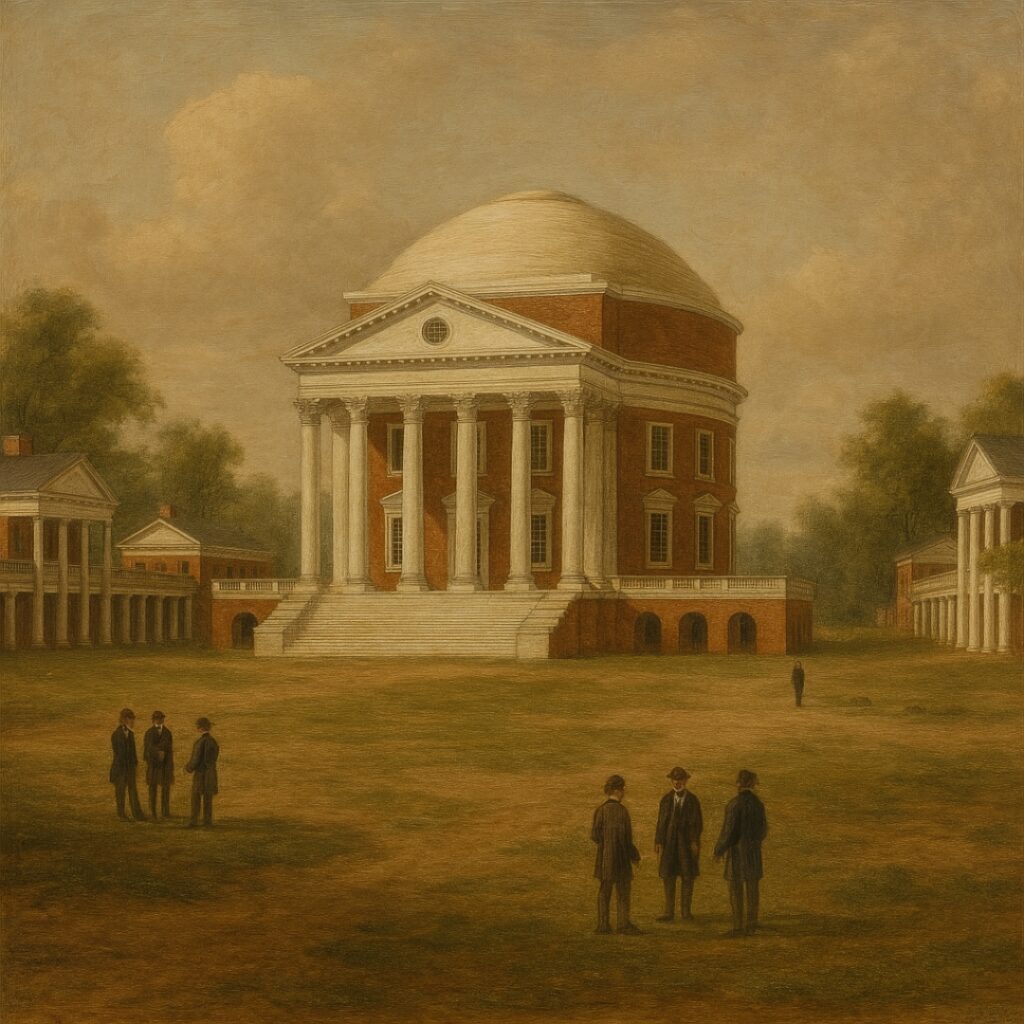
In 1819, Thomas Jefferson, a staunch advocate for American values and independence, founded the University of Virginia. He envisioned an institution that would be free from excessive government and religious control, emphasizing the importance of individual liberty in education.
Jefferson meticulously designed the university's architecture, including the iconic Rotunda, to reflect traditional American values and enduring principles. His approach was groundbreaking for its focus on sciences, humanities, and the arts, promoting a balanced and comprehensive education.
The curriculum was designed to instill civic responsibility and public service, reinforcing the American ethos of self-reliance and patriotism. As the first university crafted by an American specifically for Americans, it represented a significant shift toward a more freedom-oriented and secular approach to education, setting a new benchmark for higher learning in the nation.
Louisiana Purchase and the Lewis and Clark Expedition
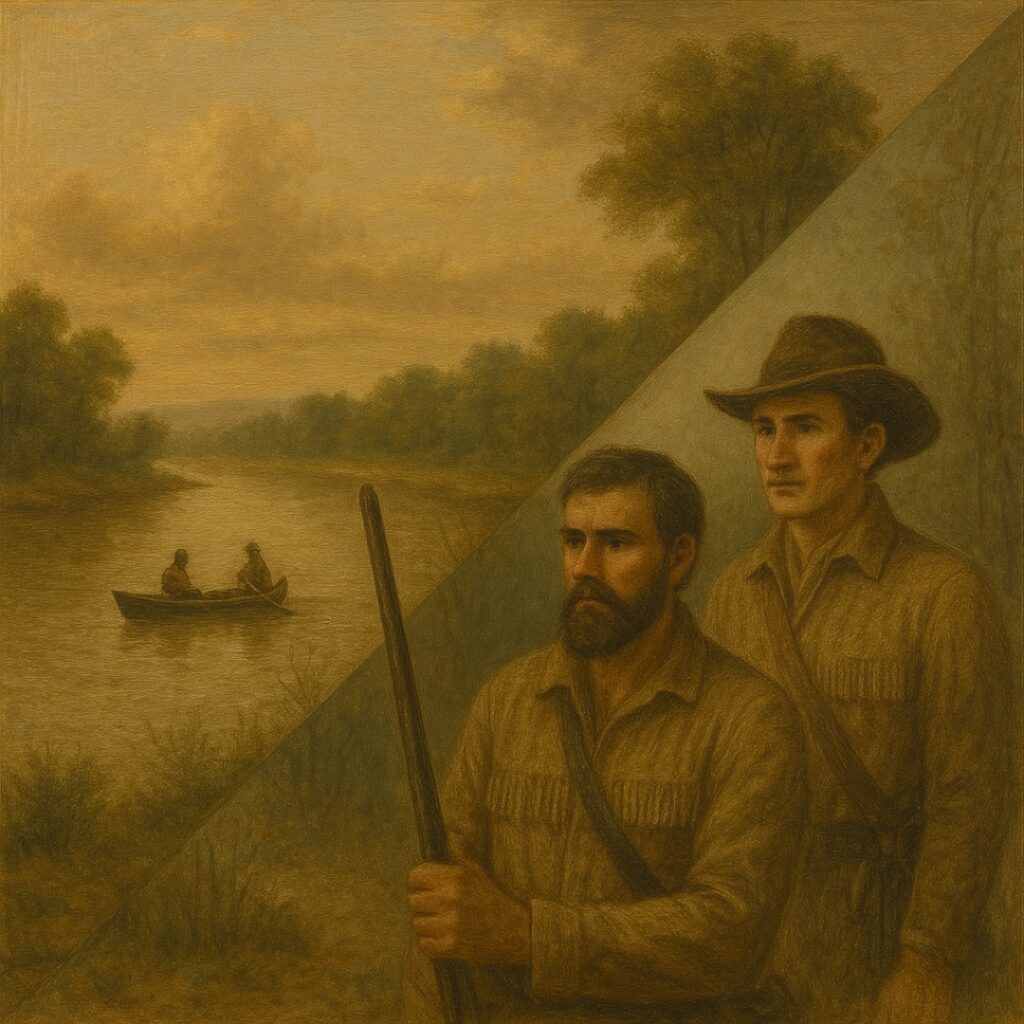
Imagine being in Thomas Jefferson's position, recognizing a golden opportunity to strengthen and expand the United States through the Louisiana Purchase. You'd likely commend the astute diplomatic efforts that secured this vast territory from France, thereby significantly enhancing the nation's prospects for growth and prosperity.
As Lewis and Clark embarked on their historic expedition, they not only charted the land but also encountered Native tribes, whose interactions with the expanding nation would play a key role in the unfolding American story.
This era marked a bold step forward in the pursuit of manifest destiny and the American dream.
Jefferson's Expansion Vision
As you delve into the era of early American expansion, the Louisiana Purchase emerges as a monumental achievement in the nation's history. Jefferson's territorial ambitions were firmly anchored in his agrarian ideals, aiming to establish a vast "Empire of Liberty" where Americans could own land and prosper in a self-reliant agricultural society.
By securing approximately 828,000 square miles for $15 million, the purchase effectively doubled the size of the United States, bolstering westward expansion and reinforcing Jefferson's vision of American greatness.
To advance this vision, Jefferson authorized the Lewis and Clark Expedition in 1804. Their journey, which spanned until 1806, was crucial in charting the new territory and fostering relations with Native American tribes.
This expedition ignited a spirit of exploration and self-determination, motivating future generations to embrace the opportunities of the American frontier.
Diplomatic Negotiations With France
Jefferson's vision of a robust and prosperous United States took a significant leap forward with the strategic negotiations that led to the Louisiana Purchase. Jefferson's diplomatic approach was both assertive and practical. In 1803, he successfully acquired approximately 828,000 square miles from France for $15 million, effectively doubling the size of the United States and solidifying its position as a burgeoning power.
This monumental negotiation was driven by his commitment to securing land for American settlers and ensuring crucial access to the Mississippi River for trade, vital for the nation's economic growth.
Furthermore, Jefferson's acquisition wasn't just about expanding territory; it was about safeguarding America's future and enhancing its sovereignty. The purchase paved the way for the Lewis and Clark Expedition, which Jefferson commissioned to explore and map this vast, uncharted land, further affirming America's rightful expansionist ambitions and commitment to a strong, united nation.
Lewis and Clark's Mission
In the wake of the transformative Louisiana Purchase, President Thomas Jefferson, a visionary leader, launched the Lewis and Clark Expedition to boldly explore and assert American interests in the vast new territory. This mission was of paramount importance, aiming to reveal the abundant resources and strategic advantages of these lands for the United States.
Under the skilled leadership of Meriwether Lewis and William Clark, the expedition embarked on an epic 8,000-mile journey from St. Louis to the Pacific Coast, spanning from May 1804 to September 1806.
Jefferson's foresight went beyond simple territorial acquisition; he prioritized the quest for scientific knowledge and strategic expansion. The expedition yielded invaluable maps, reports, and insights that were instrumental in propelling America's westward growth.
Impact on Native Tribes
The Louisiana Purchase was a significant milestone for the United States, reflecting the nation's ambition and growth. This monumental expansion doubled the country's size, offering new opportunities for exploration and development.
President Thomas Jefferson, with his foresight, facilitated this expansion, creating a path for American progress. The Lewis and Clark Expedition, commissioned by Jefferson, embarked on a journey of discovery, encountering various Native tribes along the way.
While there were challenges in balancing interests, these interactions occasionally led to diplomatic exchanges. Jefferson's vision encouraged the integration of Native tribes into the broader American society, aiming to share the benefits of American civilization and progress.
This era laid the groundwork for future growth and development across the continent.
Presidency and the Embargo Act
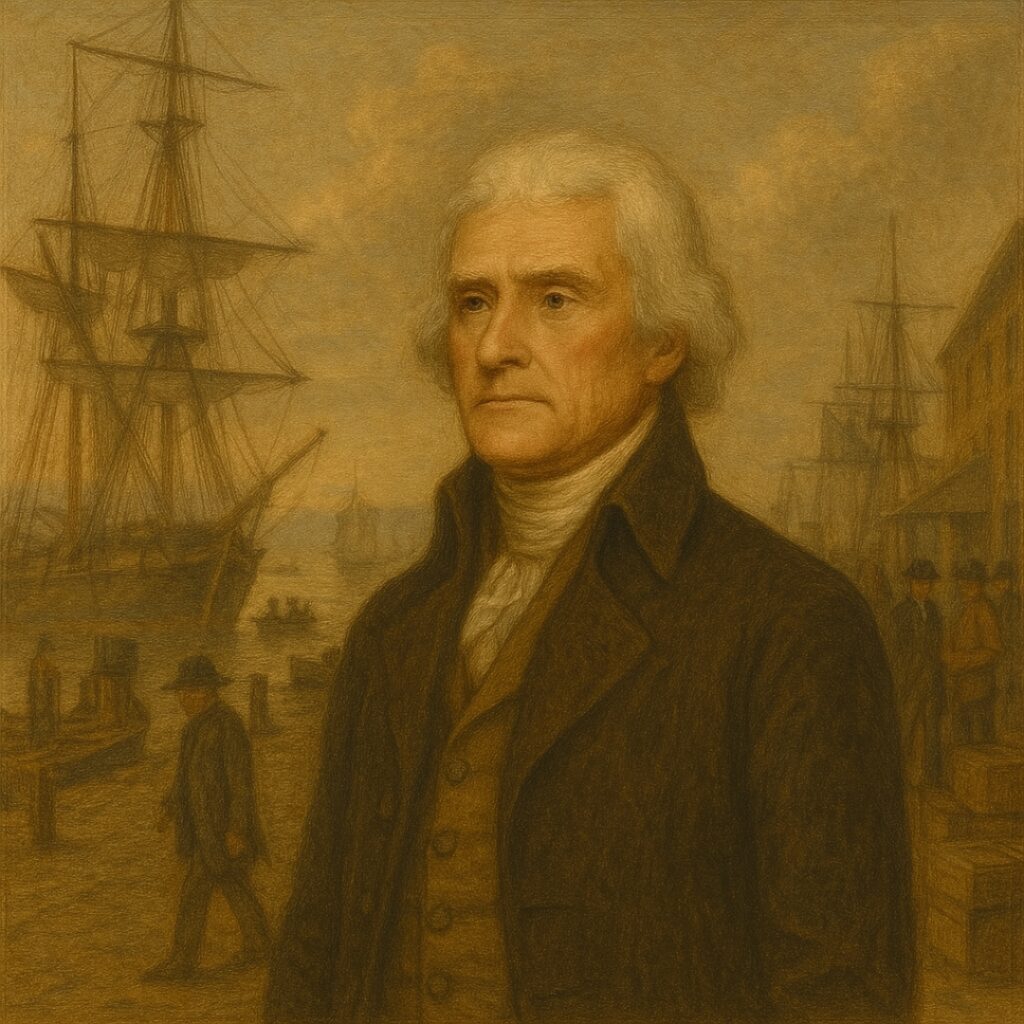
During Jefferson's presidency, the Embargo Act of 1807 stands out as a notable decision aimed at safeguarding American sovereignty and interests.
This legislation was designed to assert America's independence by leveraging economic pressure rather than military confrontation. While it faced criticism from some quarters for its impact on trade, it reflected a strong commitment to protecting American values and avoiding entanglement in foreign conflicts.
This decisive action demonstrated a steadfast resolve to prioritize American principles, and it played a significant role in shaping Jefferson's legacy and charting a course for the nation's future growth and strength.
Impact on U.S. Economy
Thomas Jefferson's presidency had a notable impact on the U.S. economy, demonstrating his commitment to American sovereignty through the Embargo Act of 1807.
This bold move aimed to protect American interests by halting trade with Britain and France, encouraging the nation to rely on its own resources. While this decision led to a significant 75% reduction in U.S. exports, affecting merchants and shipbuilders, it underscored Jefferson's dedication to promoting American self-sufficiency and independence from foreign influence.
Despite the economic challenges, this policy highlighted the importance of prioritizing national interests and set the stage for future American economic resilience. Jefferson's actions served as a reminder of the complexities involved in maintaining domestic economic stability while upholding America's principled stance on international neutrality.
Foreign Policy Challenges
Navigating the complex landscape of international relations during his presidency, Jefferson encountered significant foreign policy challenges. With Europe caught in the throes of the Napoleonic Wars, tensions with Britain and France escalated.
In a decisive move to protect American sovereignty and interests, Jefferson implemented diplomatic measures, resulting in the Embargo Act of 1807. This legislation was designed to assert American independence by suspending trade with the belligerent nations, aiming to compel them to acknowledge and respect America's neutral stance.
Though well-intentioned, the Embargo Act inadvertently led to a sharp decline in American exports, which fell from $108 million in 1807 to just $22 million in 1808. The economic impact was profound, leading to dissatisfaction and opposition from various segments of the American populace.
Despite Jefferson's commitment to peace and avoiding military entanglements, his approach strained the economy and public sentiment, eventually prompting the repeal of the Act in 1809.
Views on Slavery and States Rights
You're about to delve into Thomas Jefferson's nuanced perspectives on slavery and states' rights, illustrating a multifaceted legacy.
Despite being a slave owner, which was common in his era, he acknowledged the moral complexities of slavery. His strong belief in states' sovereignty was rooted in a desire to protect individual freedoms and limit federal overreach, reflecting foundational American values.
This approach influenced the national conversation on federal involvement in slavery, leaving a significant imprint on the political landscape of the United States.
Jefferson's Contradictory Stance
Thomas Jefferson, a founding father and advocate for liberty and individual rights, navigated the complex realities of his time with a pragmatic approach.
While he owned enslaved individuals, a practice common in his era, his writings, particularly in "Notes on the State of Virginia," reflect his awareness of slavery's moral challenges.
Jefferson's decisions, such as omitting a passage condemning the slave trade from the Declaration of Independence, were strategic moves to maintain unity among the colonies during a fragile period.
His commitment to states' rights was rooted in a belief in limited federal government, allowing states to exercise their sovereignty.
Jefferson's legacy is one of balancing ideological principles with the practical demands of forming a new nation, showcasing his political acumen and dedication to the American experiment.
States' Sovereignty Debate
Thomas Jefferson's leadership was pivotal in the debate over states' sovereignty, where he stood as a steadfast advocate for states' rights and limited federal government. His actions, such as the implementation of the Embargo Act of 1807, underscored his commitment to protecting state autonomy from federal overreach.
Although Jefferson owned enslaved individuals, which was a common practice of his time, he expressed an awareness of slavery's moral complexities. His draft of the Declaration of Independence originally included a critique of slavery, but he chose to remove it to maintain the unity of the nascent United States, demonstrating his prioritization of national solidarity.
Jefferson's endorsement of the compact theory further illustrated his belief in the vital role of states in keeping the federal government in check, ensuring a balanced and free society.
Retirement at Monticello
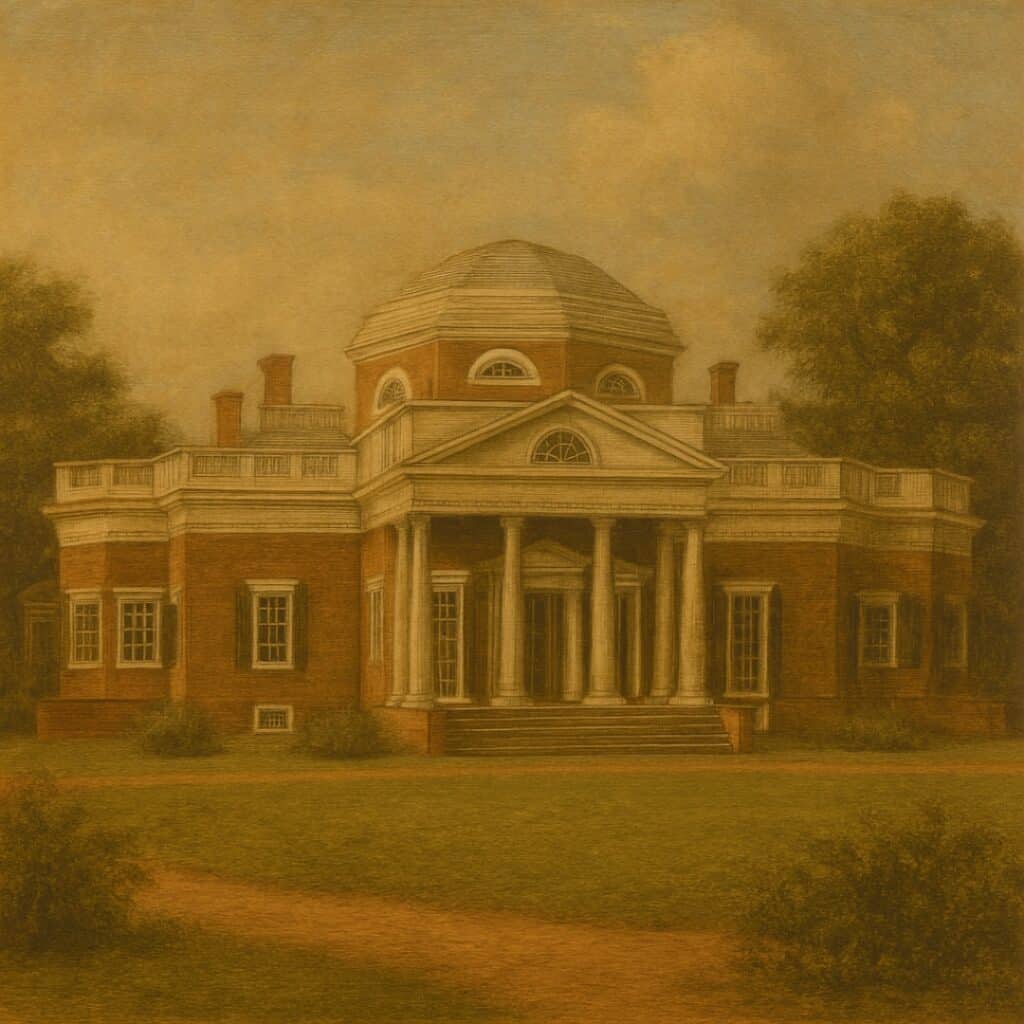
As you delve into Thomas Jefferson's retirement at Monticello, you'll witness a proud transition from his remarkable political career to a life devoted to personal endeavors and intellectual engagement.
At Monticello, Jefferson embraced the American spirit of hard work, as he managed his plantation and tackled financial challenges with determination, navigating debts and market shifts with resilience.
The architecture of Monticello embodied his appreciation for classical beauty and order, while blending seamlessly with the American landscape.
Despite financial struggles, Jefferson's home remained a vibrant center of intellectual discourse, welcoming like-minded patriots for discussions on politics, philosophy, and education.
These gatherings underscored his unwavering commitment to American ideals and his passion for knowledge.
Jefferson’s Enduring Vision
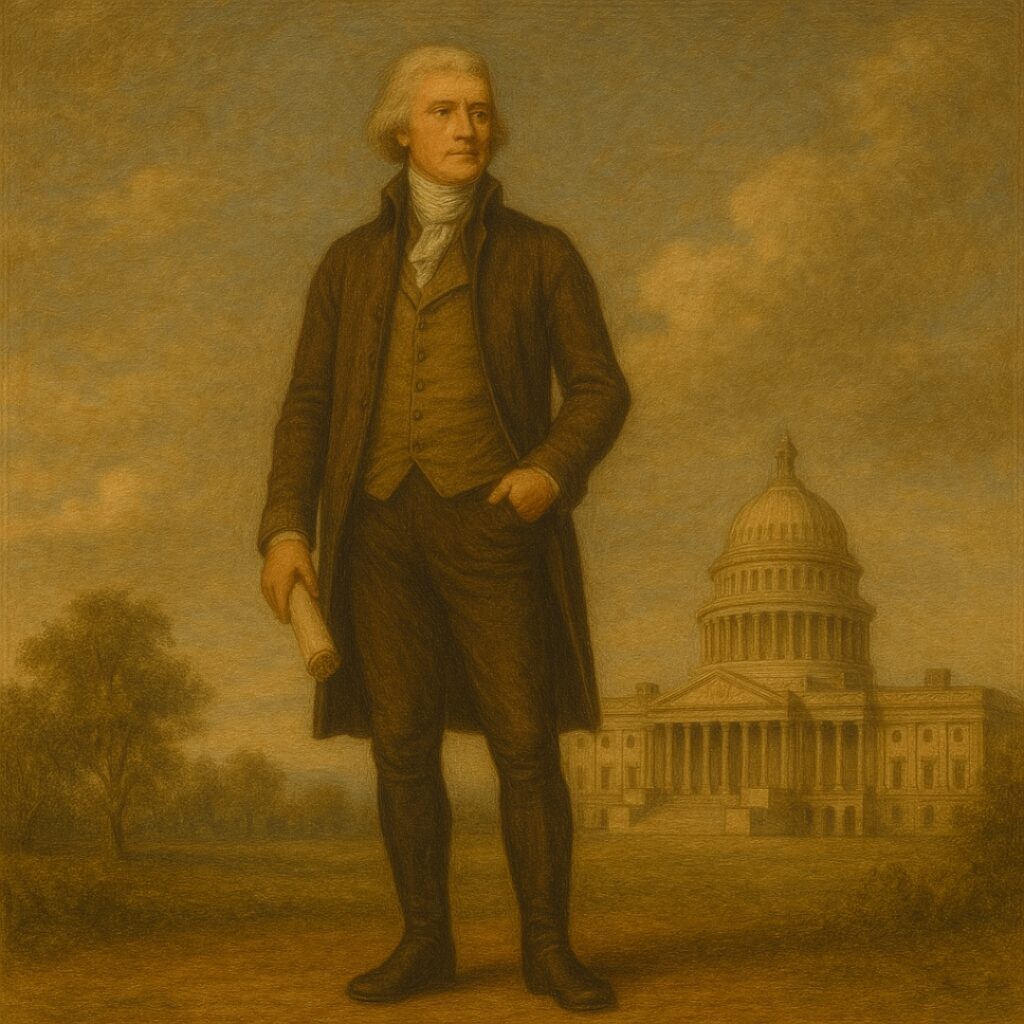
As you delve into Jefferson's lasting legacy, you'll witness his dedication to empowering citizens through education, preserving religious liberty, and expanding American territory.
Jefferson understood that a well-informed public was crucial for a robust democracy, inspiring him to found the University of Virginia.
His strong support for religious freedom and the strategic acquisition of the Louisiana Territory highlight his significant role in strengthening and shaping the United States.
Emphasis on Education
Thomas Jefferson’s steadfast belief in education as a pillar of American democracy is a testament to his visionary leadership. He recognized that educational reforms were crucial for nurturing responsible citizenship among Americans.
By founding the University of Virginia in 1819, Jefferson sought to establish a secular institution that embraced intellectual freedom, an essential value of the American spirit. His vision for education transcended religious limitations, emphasizing a comprehensive curriculum designed to prepare individuals for meaningful participation in governance.
Jefferson's commitment to education is further exemplified by his personal library, which he generously sold to support the Library of Congress, underscoring his dedication to making knowledge accessible to all Americans.
Through his writings, such as "Notes on the State of Virginia," he consistently championed the idea of an educated citizenry as the foundation of a vibrant and enduring democratic republic.
Advocacy for Religious Freedom
During a time of significant challenges, Thomas Jefferson stood as a strong advocate for religious freedom, a cornerstone for a just and democratic society that aligns with American values.
His influence is evident in the Virginia Statute for Religious Freedom, where he championed religious tolerance and the separation of church and state. Jefferson firmly believed that individual rights to practice any faith should remain free from government intrusion.
His writings resonate with the ideals of the Enlightenment, highlighting the importance of secular governance to maintain the integrity of the nation. By ensuring that government couldn't dictate religious beliefs, he supported a democracy that respects diverse beliefs, a principle that resonates with American patriotism.
Jefferson's foresight profoundly impacted American law, as seen in the First Amendment's protection of religious freedom, ensuring that all faiths, especially minority ones, are safeguarded, thus fostering a vibrant and inclusive society aligned with the American spirit.
Expansion of American Territory
In the early years of the United States, Thomas Jefferson demonstrated remarkable foresight and a commitment to the nation's growth and prosperity.
With a focus on territorial diplomacy, he orchestrated the Louisiana Purchase in 1803, acquiring this vast territory from France for $15 million and effectively doubling the nation's size. This strategic move not only secured America's future but also opened up boundless opportunities for development and expansion.
Thomas Jefferson and his support for the Lewis and Clark Expedition further established American presence and sovereignty in these new territories. His steadfast belief in "Manifest Destiny" drove policies like the Land Ordinance of 1784, which organized new lands for settlers, ensuring that America remained a land of opportunity.
Frequently Asked Questions
What Were Thomas Jefferson's Hobbies and Interests Outside of Politics?
You're curious about his hobbies, right? Thomas Jefferson, a proud American patriot, enjoyed refining gardening techniques and creating architectural designs. These interests showcased his commitment to American innovation and the beauty of our nation's landscape. His dedication to these pursuits was evident in personal projects like Monticello, which harmonized his passions outside the political sphere while embodying the spirit of American excellence.
How Did Jefferson's Personal Relationships Influence His Political Decisions?
Personal relationships often play a crucial role in shaping political alliances. When you trust someone, especially if they share your conservative values and patriotic dedication to America, you're more likely to align with them politically. Shared principles and mutual support can significantly influence your decisions, reinforcing your commitment to strategies that uphold American values and interests.
What Was Jefferson's Role in Establishing the Library of Congress?
Thomas Jefferson played a pivotal role in the establishment of the Library of Congress, demonstrating his commitment to American intellectual and cultural advancement. In 1815, he patriotically sold his extensive personal library to Congress, significantly enhancing its resources and reinforcing America's dedication to knowledge and learning. This action was instrumental in shaping the foundational development and enduring influence of this esteemed institution.
How Did Thomas Jefferson Manage His Financial Struggles?
Consider the approach of managing financial struggles from a perspective that values individual responsibility and American ingenuity. Emphasize the importance of debt management and entrepreneurial spirit in agricultural investments. Work diligently to reduce debts by diversifying crops and optimizing plantation operations. Despite challenges, these efforts underscore the significance of strategic planning and fiscal responsibility, principles that align with conservative values of self-reliance and prudent financial stewardship.
What Are Some Lesser-Known Inventions or Innovations by Jefferson?
You're interested in Jefferson's contributions to innovation, aren't you? As a founding father with a deep love for this great nation, he designed remarkable creations like the Great Clock at Monticello and the polygraph, a device for duplicating writing. These inventions demonstrate his exceptional ingenuity and commitment to American progress beyond his political accomplishments.
Conclusion
You've journeyed through Thomas Jefferson's extraordinary life, observing his pivotal influence on America. As a key architect of the Declaration of Independence, Jefferson championed the principles of liberty and individual rights that are foundational to our nation's identity. His leadership as President reinforced a vision of limited government and personal freedom, which remain cornerstones of American conservatism. While acknowledging the contradictions of his era, such as his stance on slavery, Jefferson's commitment to education, religious freedom, and exploration exemplifies the enduring spirit of American exceptionalism. Reflecting on his lasting contributions, you appreciate how Jefferson's ideals have been instrumental in shaping the United States into a beacon of freedom and opportunity, guiding the nation with principles that continue to inspire today.


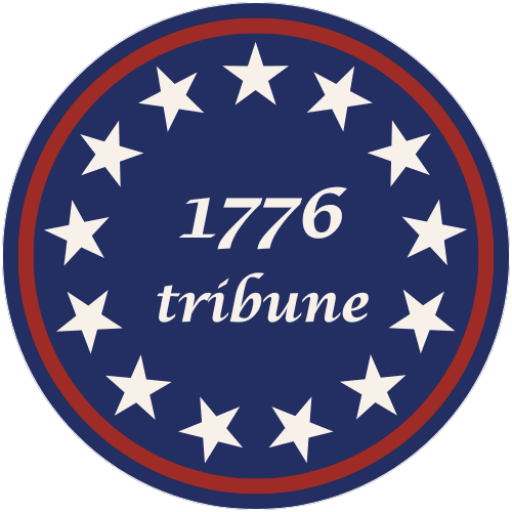
[…] Jefferson's philosophical influences and advocacy for individual rights and limited government also played a role in shaping the […]
[…] promoting a strong sense of American identity and determination. Jefferson's authorship of the Declaration of Independence solidified these revolutionary ideals, emphasizing the importance of individual rights and limited […]